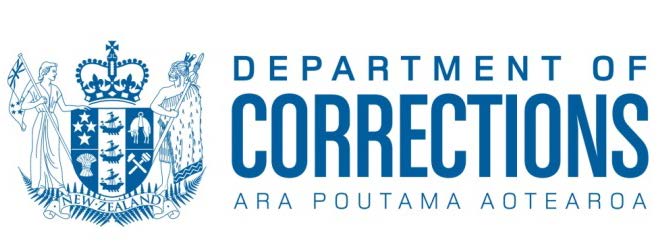
13 December 2021
C142200
Hope Kennedy-Smith
[FYI request #16998 email] Tēnā koe Hope
Thank you for your email dated 1 October 2021 to the Department of Corrections –
Ara Poutama Aotearoa (Corrections), requesting information about internal and
external medical appointments for people in prison. Your request has been
considered under the Official Information Act 1982 (OIA).
Firstly, I would like to apologise for the delay in responding to you and thank you for
your patience.
Corrections has a statutory obligation under the Corrections Act 2004 to provide a
primary health service to people in prison reasonably equivalent to that found in the
community. Primary health care is provided within prison health centres by over 200
full-time equivalent registered nurses. Specialised medical professionals such as
medical officers (doctors) and dentists are contracted to provide basic and necessary
services.
People who are sentenced to prison undergo a standard induction process when
they arrive, where health staff assess each person’s physical and mental health
needs, including whether they may be at risk of self-harm or suicide and whether
they require a referral to a prison doctor for healthcare needs.
At all times a medical professional will make health care decisions in accordance
with the person’s medical history and with the continued wellbeing of the person as
the paramount concern. If there are medical concerns that cannot be addressed
within prison, external medical care is arranged and people in prison will be safely
escorted to get the care they need. People in prison are referred to specialist
services on the same basis as people in the community.
Any time a person in prison is required to be escorted outside of a prison, our focus
is on safety, security and minimising risk to the public, our staff and people in prison.
Every year Corrections carries out tens of thousands of escorts between prisons,
courts, medical facilities and rehabilitation providers. Robust security processes are
in place for all people in prison who require assessment or treatment outside of the
secure confines of a prison. Safety is our top priority, and each time a person in
prison is transported outside of the secure prison perimeter, we carry out a thorough
risk assessment and put together a comprehensive plan to mitigate any risks
NATIONAL OFFICE, WELLINGTON
Mayfair House, 44 – 52 The Terrace, Wellington, 6011, Private Box 1206, Wellington 6140,
Phone +64 4 460 3000
www.corrections.govt.nz
2
identified. This includes specifying the number of escorting staff, what type of
restraints are to be used, and the transport method.
You requested:
1) Please provide me with the total number of medical appointments outside
of prison attended by prisoners, per week, since January 1, 2019. Please
break this down by prison. Please give this to me in an excel spreadsheet.
2) How many medical appointments outside of prison have been cancelled or
delayed due to Level 3 and 4 Covid Lockdowns?
In the 2019/20 financial year, there were a total of 13,335 medical escorts. In the
2020/21 financial year, there were 13,433.
At any one time there are around 8,000 people across all New Zealand prisons, with
the prison population subject to daily fluctuations due to Court decisions, sentence
end dates and scheduled releases.
While we hold the overall numbers for medical escorts, we do not break the data
down further into the types of medical escorts. Planned medical appointments will be
captured in the overall data, along with other reasons that are included in the
‘medical escort’ category such as emergency medical care. In the same regard,
appointments that are cancelled would only be listed on a person’s file, not in a
centralised location. In order to compile the data, we would have to manually search
through thousands of individual health files which would impede effective
administration.
During certain Alert Levels in the community, many health providers limited their
appointments during the lockdown, which could have also affected appointments for
those in prisons. However, if at any point, during lockdown or otherwise, that a
person in prison became unwell, they still had access to emergency medical care.
Searching individual health files for information in scope of your request would be a
very intensive task. Therefore, this part of your request is refused under section 18(f)
of the OIA, as the information requested cannot be made available without
substantial collation or research.
We have considered whether fixing a charge or extending the time limit would allow
us to respond to this request, in line with section 18A of the OIA. In this instance, we
do not believe it would be a good use of our limited publicly funded resources. We
have also considered under section 18B of the OIA, if consulting you to refine your
request would enable us to respond, however, given how health data is held, we do
not believe so in this case.
3) Please provide me with the total number of medical appointments in prison
attended by prisoners, per week, since January 1, 2019. Please break this
down by prison. Please break this down by the type of appointment, e.g.
nurse, doctor, dental. Please give this to me in an excel spreadsheet.
3
4) How many medical appointments within prisons have been cancelled or
delayed due to Level 3 and 4 Covid Lockdowns? Please break this down by
the type of appointment, e.g. nurse, doctor, dental.
For internal medical appointments, this is a very broad category that includes, but is
not limited to, dental appointments, physiotherapy appointments, doctor, and nurse
consults. You have requested data for nurse, doctor and dentist consults which we
have provided in Appendix One, attached, however this is not inclusive of all
appointments that happen at prison sites. Additionally, the statistics we hold are
monthly, not weekly and we are unable to break it down further into weeks.
Up until July 2019, the number of medical appointments was not centrally collated
and only held at the prison sites on individual files. To extract the data from 1
January to July 2019, we would have to manually search through individuals’ files
that would impair the effective administrative of the health teams. As such, the data
for these dates is refused under section 18(f) of the OIA, the information cannot be
made available without substantial collation or research.
Likewise, we do not collate the amount of appointments that have been cancelled,
for any reason. This information could be held on individual files, but to extract it we
would have to search through those files. Therefore, the information for question four
is also refused under section 18(f) of the OIA, as the information cannot be made
available without substantial collation or research.
For both refusals above, we have considered whether fixing a charge or extending
the time limit would allow us to respond to this request, in line with section 18A of the
OIA. In this instance, we do not believe it would be a good use of our limited publicly
funded resources. We have also considered under section 18B of the OIA, if
consulting you to refine your request would enable us to respond, however, given
how health data is held, we do not believe so in this case.
5) How long is the waiting list to see a doctor, dentist, or nurse at each prison,
as of today’s date?
Corrections is working on developing a system to collate this information centrally,
but as it stands, we do not hold the overall lengths of the waiting lists broken down
by each prison as of today. Therefore, the data in the form you requested is refused
under section 18(g) of the OIA, the information requested is not held by the
department and the person dealing with the request has no grounds for believing
that the information is either held by another department or connected more closely
with the functions of another department.
Corrections is constantly striving to improve the way we record data. We recognise
that our health data reporting is an area in which improvement is ongoing. Over the
past year, the health team has implemented new data reporting systems, as we
move toward making information centrally collated and readily available, which
includes rolling out a quarterly report on medical escorts. Changes have been made
to the way internal prison medical consultations are recorded and Corrections is
working to develop new ways to keep track of overall medical care being provided.

4
I trust the information provided is of assistance. I encourage you to raise any
concerns about this response with Corrections. Alternatively, you are advised of your
right to also raise any concerns with the Office of the Ombudsman. Contact details
are: Office of the Ombudsman, PO Box 10152, Wellington 6143.
Ngā mihi
Juanita Ryan
Deputy Chief Executive Health

